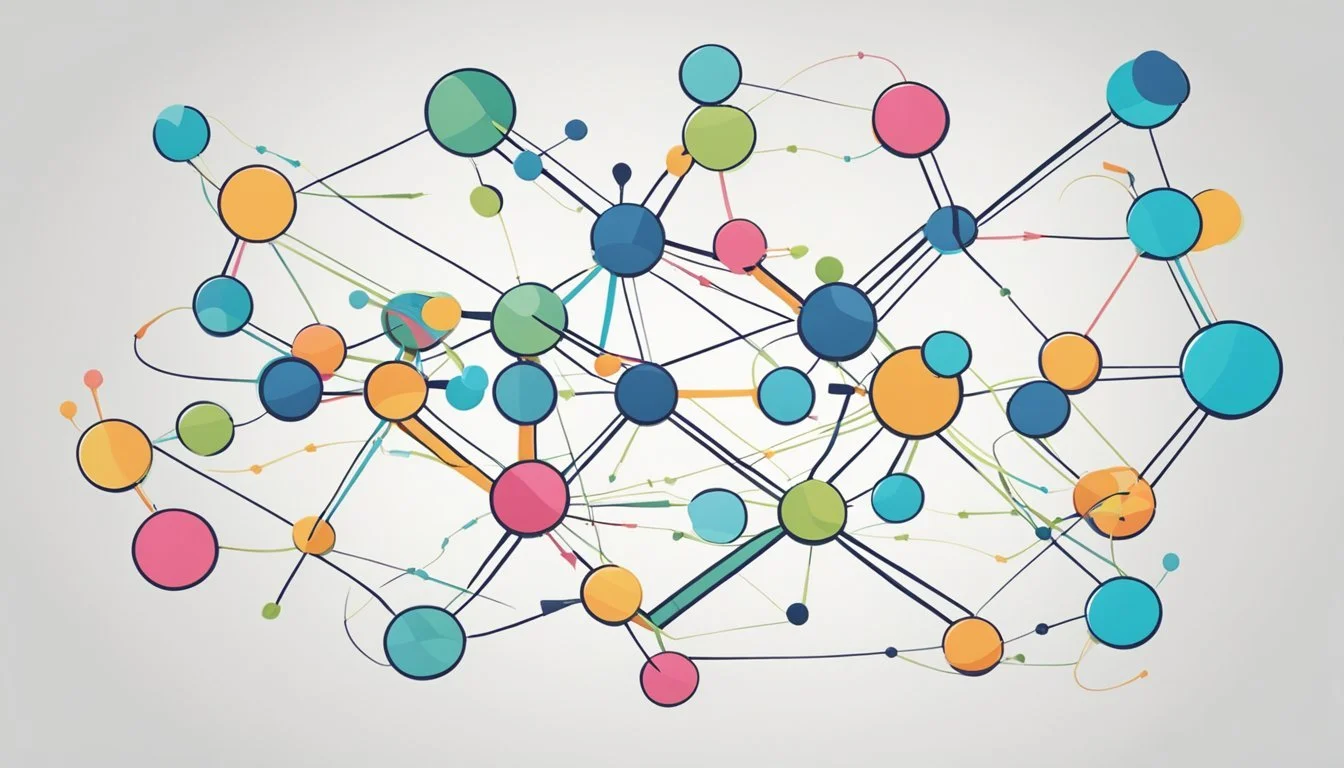11 Strategies for Managing Depression in High-IQ Individuals
Effective Approaches for Intellectual Minds
Depression can affect individuals across all intelligence levels, but those with high IQs may face unique challenges in managing their mental health. Research suggests a correlation between higher intelligence and increased susceptibility to certain mental health conditions, including depression. This article explores strategies tailored to help high-IQ individuals cope with depressive symptoms.
Understanding the specific needs of highly intelligent people is crucial for developing effective depression management techniques. These strategies aim to address the cognitive and emotional complexities often experienced by individuals with high IQs. By combining scientific insights with practical approaches, this article offers valuable tools for those seeking to navigate depression while harnessing their intellectual strengths.
1) Cognitive Behavioral Therapy
Cognitive Behavioral Therapy (CBT) is a highly effective treatment for depression in high-IQ individuals. This evidence-based approach focuses on identifying and modifying negative thought patterns and behaviors that contribute to depressive symptoms.
CBT helps individuals recognize distorted thinking and replace it with more realistic, balanced perspectives. For high-IQ individuals, this process often involves challenging deeply ingrained beliefs and complex thought patterns.
The therapy typically includes various techniques such as cognitive restructuring, behavioral activation, and problem-solving skills training. These methods can be particularly beneficial for those with high intelligence, as they engage analytical thinking and logical reasoning.
CBT sessions may involve homework assignments, allowing individuals to practice new skills and apply learned concepts in real-life situations. This active participation can be especially appealing to those with high cognitive abilities.
For high-IQ individuals struggling with depression, CBT can provide a structured framework to address perfectionism, impostor syndrome, and other common challenges. The therapy can be tailored to accommodate their unique intellectual needs and preferences.
2) Mindfulness Meditation
Mindfulness meditation can be a powerful tool for high-IQ individuals struggling with depression. This practice involves focusing on the present moment and observing thoughts and feelings without judgment.
Research suggests that regular mindfulness meditation may help reduce symptoms of depression and anxiety. It can also increase gray matter in the hippocampus, an area of the brain associated with memory and emotional regulation.
For high-IQ individuals, mindfulness meditation offers a way to quiet racing thoughts and cultivate mental clarity. It encourages a non-reactive stance towards difficult emotions, which can be particularly beneficial for those prone to overthinking.
Simple mindfulness exercises can be incorporated into daily routines. One effective technique is mindful breathing, where one focuses on the sensation of breath entering and leaving the body.
Another approach is body scan meditation, which involves systematically paying attention to different parts of the body. This can help high-IQ individuals reconnect with physical sensations and reduce mental rumination.
Consistency is key when practicing mindfulness meditation. Even short daily sessions of 5-10 minutes can yield significant benefits over time.
3) Regular Physical Exercise
Physical activity plays a crucial role in managing depression for high-IQ individuals. Exercise promotes the release of endorphins, which can improve mood and reduce stress.
Studies have shown that regular exercise can be as effective as medication for mild to moderate depression. Even short periods of activity, such as a 15-minute walk, can provide immediate benefits.
For optimal results, aim for at least 150 minutes of moderate-intensity exercise per week. This can include activities like brisk walking, swimming, or cycling.
High-IQ individuals may benefit from mentally engaging exercises such as rock climbing or martial arts. These activities challenge both the body and mind, providing a stimulating outlet for their intellect.
Consistency is key when incorporating exercise into a depression management plan. Establishing a routine and setting achievable goals can help maintain motivation and track progress.
Group exercise classes or team sports can offer additional social benefits, combating feelings of isolation often experienced by those with depression. The combination of physical activity and social interaction can be particularly effective.
4) Supportive Social Networks
Building and maintaining supportive social networks is crucial for high-IQ individuals managing depression. These networks provide emotional support, understanding, and reassurance, which can significantly impact mental well-being.
For those with high intelligence, finding peers who relate to their unique experiences and thought processes can be challenging. Seeking out groups or communities of like-minded individuals can help combat feelings of isolation.
Mentorship programs tailored to high-IQ individuals can offer valuable guidance in navigating social interactions and emotional management. These relationships can provide a safe space for intellectual discourse and personal growth.
Online forums and social media groups dedicated to gifted individuals can serve as platforms for connection and support. These virtual communities allow for the exchange of ideas and experiences with others who share similar cognitive traits.
Engaging in activities that align with one's interests can lead to organic social connections. Joining clubs, attending workshops, or participating in intellectual pursuits can facilitate meaningful relationships with those who share similar passions.
Professional counseling services can also play a role in developing social skills and strategies for building supportive relationships. Therapists experienced in working with high-IQ clients can provide tailored advice for managing social challenges.
5) Adequate Sleep Hygiene
Sleep plays a crucial role in managing depression for high-IQ individuals. Establishing good sleep hygiene habits can significantly improve mood and cognitive function.
A consistent sleep schedule is essential. Going to bed and waking up at the same times each day helps regulate the body's internal clock and promote better sleep quality.
Creating a relaxing bedtime routine can signal to the brain that it's time to wind down. This may include activities like reading, gentle stretching, or listening to calming music.
The sleep environment matters. A dark, quiet, and cool bedroom promotes better sleep. Removing electronic devices and limiting screen time before bed can reduce sleep disruptions.
Regular exercise during the day can improve sleep quality at night. However, vigorous exercise should be avoided close to bedtime as it may interfere with falling asleep.
Limiting caffeine and alcohol intake, especially in the hours leading up to bedtime, can help prevent sleep disturbances. Both substances can negatively impact sleep quality and duration.
If sleep problems persist, consulting a healthcare professional may be beneficial. They can provide targeted strategies or treatments to address specific sleep issues.
6) Nutrient-Rich Diets
Nutrient-rich diets play a crucial role in managing depression, especially for high-IQ individuals. Research indicates that certain foods can modulate depression-associated biomarkers and potentially improve symptoms.
A diet rich in fresh, whole foods is associated with a decreased risk of depression. This includes fruits, vegetables, nuts, legumes, fish, and olive oil - key components of the Mediterranean diet.
Dark leafy greens are particularly beneficial due to their high nutrient content. Healthy fats from sources like avocados and nuts should be consumed in moderation.
Dietary zinc has shown strong evidence in reducing depression incidence. Incorporating zinc-rich foods such as oysters, beef, and pumpkin seeds can be beneficial.
Tea consumption has also been linked to lower rates of depression. Both green and black teas contain compounds that may help alleviate depressive symptoms.
Conversely, processed foods, junk food, and fast food should be limited. These items often lack essential nutrients and may contribute to inflammation, potentially exacerbating depressive symptoms.
By focusing on nutrient-dense, whole foods, high-IQ individuals can support their mental health through dietary choices. This approach complements other strategies for managing depression.
7) Psychoeducation Programs
Psychoeducation programs offer valuable support for high-IQ individuals managing depression. These interventions provide accurate information about depression and effective self-management strategies.
Psychoeducation can be delivered in various formats, including group sessions, individual counseling, or online platforms. Programs typically cover topics such as symptoms recognition, coping skills, and treatment options.
For high-IQ individuals, psychoeducation programs may be tailored to address their unique cognitive needs. These programs can incorporate complex problem-solving techniques and in-depth discussions on the neurobiological aspects of depression.
Cognitive-behavioral therapy (CBT) principles are often integrated into psychoeducation programs. This approach helps participants identify and challenge negative thought patterns associated with depression.
Research suggests that psychoeducation can be an effective first-line or adjunctive approach in preventing and managing depression. It equips individuals with knowledge and tools to better understand and cope with their condition.
High-IQ individuals may benefit from psychoeducation programs that foster peer support and shared experiences. This can help reduce feelings of isolation often experienced by those with high cognitive abilities.
8) Structured Daily Routines
Implementing structured daily routines can be particularly beneficial for high-IQ individuals struggling with depression. A well-planned schedule provides a sense of stability and purpose, helping to combat the chaos that often accompanies depressive episodes.
Routines can include set times for waking up, eating meals, working, exercising, and engaging in leisure activities. This structure helps regulate sleep patterns and promotes better overall physical health, which can positively impact mood.
For high-IQ individuals, incorporating intellectually stimulating activities into the daily routine is crucial. This might involve dedicating time to reading, problem-solving, or pursuing creative projects that align with their interests and abilities.
Consistency is key when establishing routines. Sticking to a schedule, even on difficult days, can provide a sense of accomplishment and help maintain momentum. However, it's important to build flexibility into the routine to avoid feelings of failure if occasional deviations occur.
Regularly reviewing and adjusting the routine ensures it remains effective and aligned with changing needs and circumstances. This adaptability is particularly important for high-IQ individuals who may require frequent mental stimulation and variety.
9) Limiting Substance Use
High-IQ individuals with depression may be tempted to self-medicate with alcohol or drugs. This can lead to substance abuse issues and worsen depressive symptoms over time.
Limiting substance use is crucial for managing depression effectively. Cognitive behavioral therapy can help identify triggers and develop healthier coping mechanisms.
Setting clear boundaries around alcohol consumption is important. Restricting use to moderate amounts on special occasions can prevent dependence.
Avoiding illicit drugs entirely is strongly recommended. These substances often exacerbate mood disorders and cognitive difficulties.
Seeking professional help is advisable for those struggling with co-occurring depression and substance use. Integrated treatment approaches address both issues simultaneously.
Engaging in substance-free activities and socializing with non-users can support recovery efforts. Building a strong support network is key.
Regular exercise, mindfulness practices, and creative pursuits offer natural mood-boosting alternatives to substance use. These activities can be particularly rewarding for high-IQ individuals.
10) Creative Outlets
High-IQ individuals often benefit from engaging in creative activities to manage depression. These outlets provide a constructive way to channel complex thoughts and emotions.
Art-based activities like painting, drawing, or sculpting can offer a non-verbal means of expression. This allows for the exploration of feelings that may be difficult to articulate verbally.
Writing, whether journaling, poetry, or fiction, can serve as a powerful tool for self-reflection and emotional release. It provides an opportunity to organize thoughts and gain new perspectives on personal experiences.
Music creation or appreciation can be particularly effective for those with analytical minds. Composing, playing an instrument, or simply listening to music can engage both emotional and intellectual faculties.
Programming or coding projects can be a fulfilling creative outlet for technologically inclined individuals. These activities combine problem-solving skills with the satisfaction of building something tangible.
Crafting, such as knitting, woodworking, or origami, offers a tactile experience that can help ground individuals in the present moment. The repetitive nature of many crafts can also have a meditative effect.
Photography allows for the capture and expression of unique perspectives, encouraging mindfulness and appreciation of one's surroundings.
11) Professional Counseling
Professional counseling provides a valuable resource for high-IQ individuals struggling with depression. Trained therapists can offer specialized techniques tailored to the unique needs and thought patterns of intellectually gifted people.
Cognitive-behavioral therapy (CBT) is often effective for this population. It helps identify and reframe negative thought patterns that may contribute to depression. Therapists can also assist in developing coping strategies for perfectionism and impostor syndrome, common issues among high-IQ individuals.
Existential therapy may resonate with intellectually gifted people who grapple with deep philosophical questions. This approach can help find meaning and purpose, addressing the existential crises that sometimes accompany high intelligence.
Counselors can provide a safe space for exploring complex emotions and ideas. They can help high-IQ individuals navigate social challenges and develop emotional intelligence skills that may not come naturally.
Professional support is crucial for managing severe depression. Therapists can assess the need for medication and work alongside psychiatrists to develop comprehensive treatment plans when necessary.
Understanding High-IQ Depression
The intersection of high intelligence and depression presents unique challenges. Studies have found complex links between cognitive abilities and mood disorders, with some suggesting increased susceptibility among highly intelligent individuals.
Prevalence and Statistics
Research indicates a potential correlation between high IQ and depression. A 2009 study observed an association between low childhood IQ and major depression in adulthood, suggesting a nuanced relationship across the intelligence spectrum. Other studies have found higher rates of mood disorders among gifted individuals.
Exact prevalence is difficult to determine due to varying definitions of high IQ and depression. Some estimates suggest up to 20-30% of highly intelligent people may experience depressive symptoms at some point in their lives.
Unique Challenges Faced by High-IQ Individuals
Highly intelligent individuals often face distinct obstacles that can contribute to depression:
Perfectionism and self-criticism
Difficulty finding intellectual peers
Existential concerns and overthinking
Heightened sensitivity to world issues
Their cognitive abilities may lead to more complex rumination patterns. They may struggle with feelings of isolation or being misunderstood. High expectations from others and themselves can create added pressure.
Gifted individuals may also experience asynchronous development, where intellectual growth outpaces emotional maturity. This can lead to social challenges and feelings of alienation.
Depression and Cognitive Function
Depression can significantly impact cognitive abilities in high-IQ individuals. It affects various aspects of mental processing, altering how the brain functions and handles information.
Impact on Problem-Solving Skills
Depression often hampers problem-solving abilities. High-IQ individuals may struggle with tasks they previously found effortless. Complex reasoning becomes challenging, and creative solutions seem elusive.
The cognitive flexibility needed for innovative thinking diminishes. Decision-making processes slow down, and individuals may second-guess their choices more frequently.
Analytical skills can suffer, making it difficult to break down complex problems into manageable parts. This reduction in cognitive efficiency can be particularly frustrating for those accustomed to quick, insightful thinking.
Memory and Concentration Issues
Depression frequently impairs both short-term and long-term memory functions. High-IQ individuals may find it harder to recall information they once easily retained.
Concentration becomes a significant challenge. Maintaining focus on tasks, even those previously considered engaging, becomes arduous. This difficulty can lead to decreased productivity and increased errors.
Information processing speed often slows down. Reading comprehension may suffer, requiring multiple attempts to grasp material that was once quickly understood.
Multitasking, a skill many high-IQ individuals excel at, becomes more difficult. Juggling multiple cognitive demands simultaneously can feel overwhelming and lead to mental fatigue.
Therapeutic Approaches
Effective therapeutic approaches can significantly help high-IQ individuals manage depression. These methods focus on addressing thought patterns and developing coping skills tailored to their unique cognitive needs.
Cognitive Behavioral Therapy (CBT)
CBT is particularly beneficial for high-IQ individuals with depression. This approach helps identify and challenge negative thought patterns that contribute to depressive symptoms.
CBT therapists work with clients to:
Recognize distorted thinking
Reframe negative thoughts
Develop problem-solving skills
Set achievable goals
High-IQ individuals often respond well to the logical structure of CBT. The therapy can be adapted to their intellectual level, allowing for deeper analysis of thought processes.
Mindfulness-Based Therapies
Mindfulness techniques can help high-IQ individuals manage depression by reducing rumination and increasing present-moment awareness. These practices include:
Meditation
Breathing exercises
Body scans
Mindful movement
Mindfulness-based therapies teach skills to observe thoughts without judgment. This can be particularly useful for those prone to overthinking or perfectionism.
Research shows mindfulness can reduce stress and improve emotional regulation. For high-IQ individuals, it offers a way to quiet an overactive mind and find balance.









